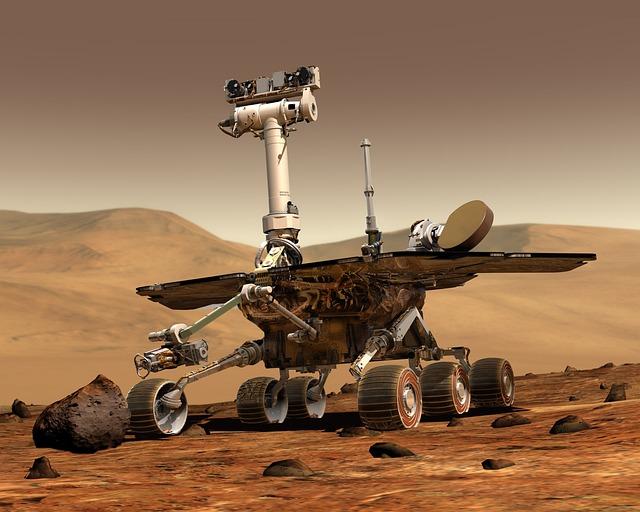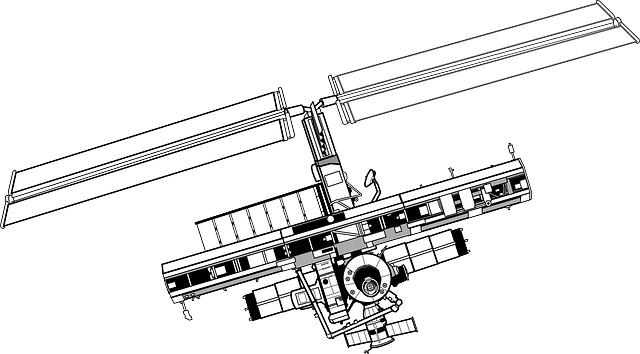- Introduction
- Advancements in Space Tech
- Satellite Technologies
- Space Exploration Innovations
- Commercial Space Tech Developments
- Conclusion
- FAQs
- References
Introduction
Space technology continues to advance rapidly, revolutionizing how we explore and understand the universe. This article will delve into the latest developments in space technology, focusing on advancements, satellite technologies, space exploration innovations, and commercial space tech developments.
Advancements in Space Tech
Over the years, significant advancements have been made in space technology, enhancing our capabilities for space missions, satellite communication, and planetary exploration. These advancements include reusable rocket technology, advancements in propulsion systems, and improved materials for spacecraft construction.

(Image: Pixabay/@WikiImages)
New technologies like advanced robotics and artificial intelligence are also reshaping space missions, enabling autonomous operations and enhancing efficiency in space exploration. Furthermore, developments in miniaturization have led to the creation of smaller and more capable satellites for various purposes.
As space agencies and private companies continue to invest in research and development, the future of space technology looks promising, with the potential for more ambitious missions and groundbreaking discoveries.
Satellite Technologies
Satellites play a crucial role in modern society, supporting communication, navigation, weather monitoring, and scientific research. Recent advancements in satellite technologies have focused on improving data transmission speeds, enhancing imaging capabilities, and increasing the lifespan of satellites.

(Image: Pixabay/@Clker-Free-Vector-Images)
One notable development is the deployment of small satellites, known as CubeSats, which offer cost-effective solutions for various applications, including Earth observation, telecommunications, and scientific research. Additionally, advances in propulsion systems and solar panel efficiency have extended the operational life of satellites in orbit.
Future satellite technologies are expected to leverage innovations in AI, machine learning, and data analytics to optimize satellite operations and enhance the value of data collected from space-based platforms.
Space Exploration Innovations
Space exploration continues to push the boundaries of human knowledge and technological capabilities. Innovations in exploration technologies have enabled missions to distant planets, moons, and asteroids, providing valuable insights into the origins and composition of our solar system.

(Image: Pixabay/@yoshitaka2)
Advanced propulsion systems, such as ion thrusters and solar sails, are under development to enable faster and more efficient interplanetary travel. Robotic missions equipped with sophisticated instruments are paving the way for crewed missions to Mars and beyond.
Exploration technologies are not limited to robotic probes – plans for space habitats, lunar bases, and asteroid mining operations are on the horizon, signaling a new era of human expansion into space.
Commercial Space Tech Developments
The commercial space industry is experiencing a renaissance, driven by companies like SpaceX, Blue Origin, and Virgin Galactic. Advances in reusable rocket technology have significantly reduced the cost of launching payloads into space, opening up new opportunities for commercial activities in orbit and beyond.

(Image: Pixabay/@geralt)
Commercial satellite deployment, space tourism, and in-orbit servicing are some of the emerging trends in the commercial space sector. Private companies are also investing in innovative technologies for resource utilization, such as asteroid mining and lunar manufacturing.
As the commercial space industry continues to innovate and expand, collaboration with traditional space agencies is becoming increasingly common, leading to a dynamic ecosystem of public-private partnerships in space exploration and development.
Conclusion
Space technology is evolving at an unprecedented pace, driven by a combination of scientific curiosity, technological innovation, and commercial interests. The future of space exploration holds tremendous promise, with new frontiers waiting to be explored and discoveries waiting to be made.
FAQs
What are the key challenges in developing space technology?
Developing space technology poses challenges such as radiation exposure, extreme temperatures, communication delays, and resource constraints that engineers and scientists must overcome.
How do advancements in space technology benefit society?
Advancements in space technology benefit society by enabling improved communication networks, weather forecasting, disaster management, environmental monitoring, and scientific research.

